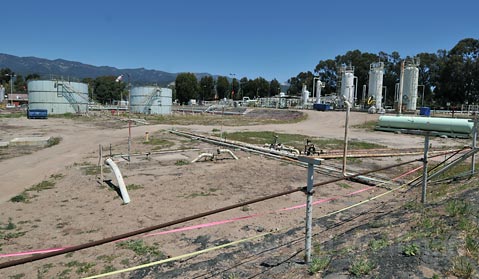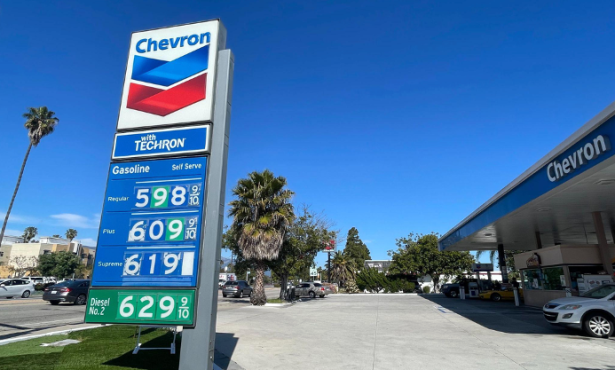Measure J, City of Carpinteria: NO
Vote Against the Venoco Sponsored Oil Drilling Initiative

The volcano-like eruption of sub-sea oil bursting out of the Gulf of Mexico should remind everyone of the extreme dangers inherent in offshore oil development. More and better oversight is clearly required, not less. Yet incredibly, the Venoco Inc. is asking Carpinteria voters to eliminate their front line of defense against such potential calamities. Those with a perverse sense of humor might want to applaud Venoco for its breathtaking audacity. But no one, under any circumstances, should vote for Measure J, the ballot initiative Venoco put on the June 8 ballot.
Venoco wants to drill up to 35 new oil wells at its onshore facility in Carpinteria that would extends offshore — via a technology known as directional drilling — and tap into reserves located off the coast in state waters. Unfortunately for Venoco, these plans are prohibited by the city’s general plan, its local coastal plan, and a host of other zoning measures designed to protect the city’s small town character. Right now, it would require a vote by the Carpinteria City Council to amend those plans and allow Venoco’s proposed oil development to proceed. Because a majority of council members have indicated their opposition to such changes, Venoco bankrolled Measure J — to the tune of about $400,000 — which would effectively strips the City Council of all approving authority for Venoco’s new oil development and vest it entirely with city voters instead.
On the surface, that sounds laudably democratic. But upon closer inspection, Carpinteria residents are being asked to surrender whatever leverage and power they currently wield over a development that could dramatically alter the face of its waterfront.
Typically, when city governments are asked to make such major planning changes, city councils exact terms and conditions from developers to best protect and benefit their communities. Projects are squeezed down to size; mitigations are imposed that the developer might not readily volunteer. In other words, there’s real give and take. Armed with the power to say “no,” even a small town like Carpinteria can go toe-to-toe with an oil company like Venoco.
But with Measure J, citizens are being asked to take only what Venoco has decided is in its best interests to give. If Measure J passes, negotiations are over. Venoco has already decided what environmental blows it wishes to soften, what mitigations it’s willing to accept, and what kind of enforcement it’s willing to tolerate. These “concessions” have been included in the fine print of Measure J. It’s worth noting that no final environmental impact report has yet been certified to help voters decide whether Venoco has offered enough. To ask voters’ approval bereft of this document constitutes a dangerous leap of blind faith. When dealing with even the best of oil companies, Ronald Reagan’s “trust but verify” axiom seem a more prudent approach.
It’s true that other agencies, like the California State Lands Commission and the California Coastal Commission, will get to review Venoco’s expanded drilling plans if Measure J is passed. When far-away state agencies deliberate over the fate of Venoco’s project, how many city residents will make the trek to attend such proceedings? And how sensitive to local concerns can such agencies really be?
So what’s in it for Carpinteria? The promise that one day, the project might yield up to $200 million in oil royalty revenues over the life of the project for “local governments.” Such projections, however, are based on the rosiest of assumptions.
Taking a more conservative tack, City Hall estimates the project would realistically generate anywhere from $8 million to $58 million, still a substantial amount. Far iffier is how many years down the road such funds might be available. It’s worth noting that residents of Hermosa Beach passed a similar measure back in 1984, and has been embroiled in non-stop litigation ever since. (An oil company is now suing that city for $700 million and the trial is scheduled to begin later this summer.)
Venoco officials are decidedly more cautious when calibrating the odds of an oil spill occuring. The chances that five gallons or more of their oil might ever befoul the shore, they insist, are less than one in a million. But we’ve all seen what one-in-a-million looks like in the Gulf of Mexico. From our vantage point, those odds make absolutely no sense.
Please, do us all a big favor and vote no on Measure J.



